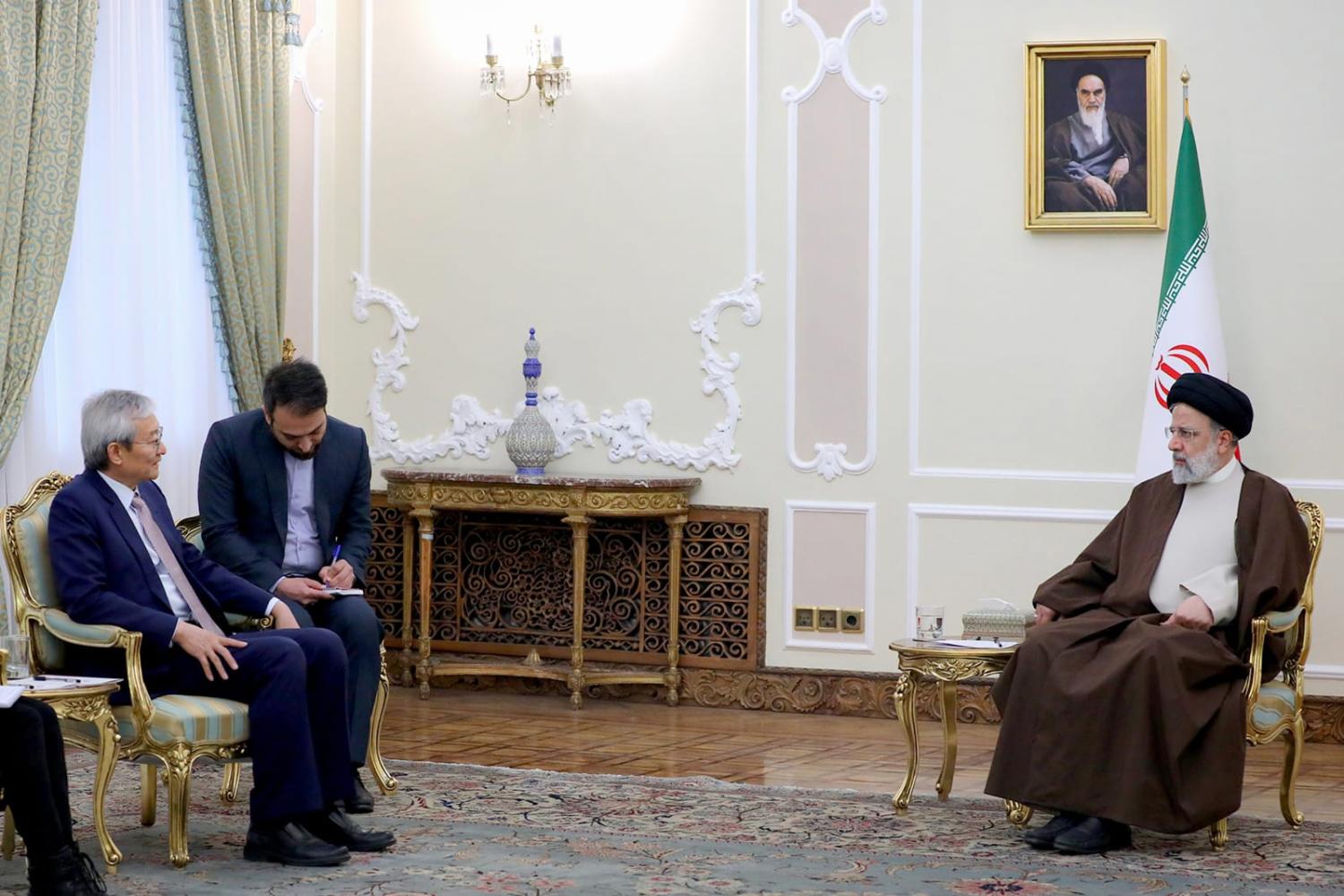Iranian President Ebrahim Raisi met Shanghai Cooperation Organisation (SCO) Secretary-General Zhang Ming in March to discuss Iran’s formal membership of the grouping, with its step-up from observer status confirmed last year. During the meeting, Raisi underlined the importance of the organisation in playing a crucial role in “creating regional and international convergence”. As Iran continues to face economic sanctions, the Islamic Republic is seeking other forums to enhance its economic and political engagement with Asian powers – a policy dubbed “Look to the East”.
Iran in recent years has strengthen its strategic cooperation with Russia and China to counter “Western hegemony”. Tehran also has sought stronger ties with Central Asian countries in key sectors including energy and transit. Iran and Uzbekistan signed several bilateral agreements last year while Raisi visited Samarkand for the last SCO summit. Iran in recent years has also signed several agreements with Kazakhstan, Turkmenistan, and Tajikistan to expand economic and trade relations.
Recent reports suggest that Iran’s trade with SCO member states reached US$33.8 billion (excluding crude oil exports) during the first ten months of the current Iranian year, with China as Iran’s foremost trade partner. In 2021, Iran’s trade with SCO members amounted to more than $37 billion, with exports totalling $20.5 billion – although US sanctions targeting entities that Iran has used to circumvent the restrictions impede its economic engagement with prospective trade partners.
Iran wants to increase its options through regional organisations such as the SCO. Since the Central Asian member states of SCO are landlocked, Iran’s geostrategic location is a major consideration for these countries, with Iran positioning itself as a major transport hub between Asia and Europe. A proposal was put forward for a Iran-Black Sea Corridor during the recently held Iran-India-Armenia trilateral meeting. India’s National Security Advisor Ajit Doval met Raisi this month and discussed areas of cooperation, including connectivity initiatives.
Iran has committed to provide safe transit routes and enhance its port capabilities for maritime trade by SCO member states. However, the problems related to payment mechanisms remain a challenge. Recent reports revealed that several vessels carrying more than 650,000 tonnes of Russian wheat were stranded at Bandar Imam Khomeini and Bandar Abbas due to payment delays and documentation. Onward transit could also run afoul of sanctions.
But the aim for Iran remains finding international connections in the face of increasing condemnation and isolation by the United States and the European Union. Sanctions targeting Russia following the invasion of Ukraine along with China’s increasing tension with the United States have created converging interests among Iran, Russia, and China. Iran has an interest in the economic opportunities provided by SCO in attracting foreign investment through the SCO Interbank Consortium and by forming free trade zones that could potentially increase prospects for non-dollar payment mechanisms.
The Iranian regime will portray its accession to SCO as a major diplomatic victory. But Iran’s outreach is driven more by difficulties than desire, and if anything underscores the growing bifurcation of the international system into contending blocs.

